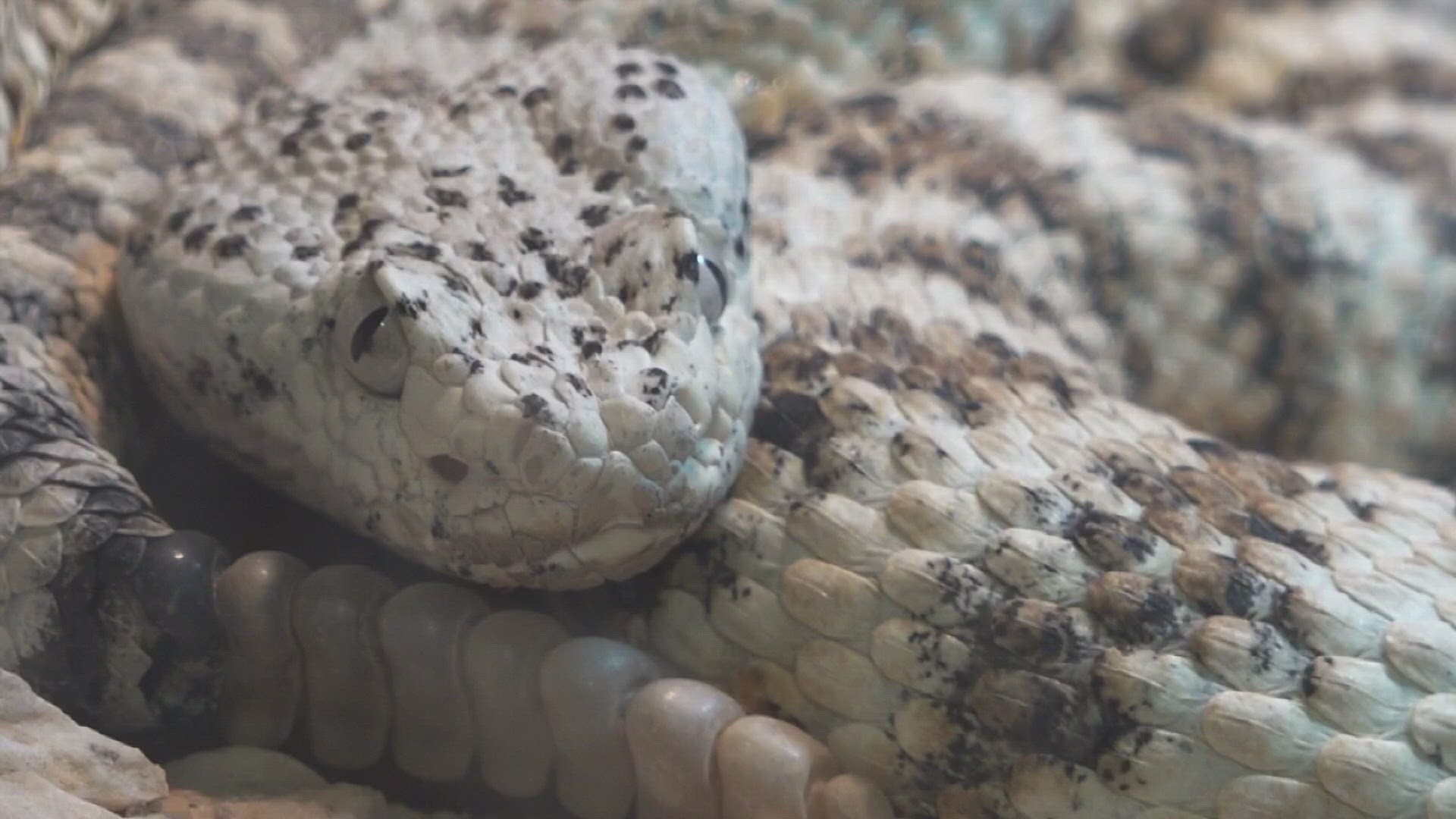ARIZONA, USA — It’s that time of year again: Rattlesnakes are coming out of hibernation and may be spotted on your hiking trail or outside your home.
The Rural Metro Fire Department said they responded to several snake-related incidents this weekend.
The U.S. Department of Agriculture and the Arizona Poison and Drug Information Center offers these tips to protect yourself from venomous snakes:
Staying safe from snakes at home:
- Clean up areas where snakes may seek shelter. Brush, wood, rock and debris piles are all things you should eliminate from your yard.
- Keep up on regular mowing and trimming of lawns and weeds.
- Control rodent populations. Bird feeders and water are two main items that draw rodents to yards, which can attract snakes.
- Always wear shoes while outside, and never put your hands where you cannot see them.
- Practice caution when stepping over fallen logs and rock outcroppings, and when walking along creek banks or through underbrush.
If you encounter a snake:
- Stay calm and don’t panic. Keep at least 5 feet from the snake. Make sure to give it plenty of space.
- Do not try to kill the snake. Doing so is illegal in some states and greatly increases the chance the snake will bite you.
- Do not throw anything at the snake, like rocks or sticks. Rattlesnakes may respond to this by moving toward the person doing the throwing, rather than away from them.
- Alert other people to the snake's location. Advise them to use caution and to respect the snake. Keep children and pets away from the area.
- Keep your dog on a leash when hiking or camping. Allowing your dog to roam around increases the chance the dog will find a snake and get bitten.
- If you hear a rattle, don't jump or panic. Try to locate where the sound is coming from before trying to move, so you don't step closer to the snake or on top of it.
What to do if bitten:
- Assume envenomation has occurred. Symptoms of snakebites vary by species but may include burning pain at the site of the bite, local swelling, and discoloration of the skin, tremors, slurred speech, blurred vision, drowsiness or euphoria.
- Call 911 immediately or get the victim to a medical facility immediately.
- Try to identify the species of snake, if possible, taking care to avoid another person being bitten. Identification is not necessary but may be helpful.
- Keep the victim as calm as possible. This helps reduce the spread of venom and the onset of shock.
- Know and be alert for the symptoms of shock, and institute the proper treatment should it ensue.
- Wash the bite area with a disinfectant if available.
- Remove jewelry, as well as tight-fitting clothes, before the onset of swelling.
- Reduce or prevent movement of a bitten extremity, using a splint if possible. Position the extremity below the level of the heart.
What not to do:
- Do not make incisions over the bite marks.
- Do not use a tourniquet or other constricting ban except in extreme cases of envenomation, and then only if properly trained in the technique.
- Do not use cryotherapy (including cold compresses, ice, dry ice, chemical ice packs, spray refrigerants, and freezing).
- Do not drink alcohol, as it dilates blood vessels and increases absorption from the circulatory system, thus helping spread venom faster.
- Do not use aspirin or related medications to relieve pain, because they increase bleeding. A pain reliever not containing aspirin, however, may be used.
- Do not use the pressure/immobilization technique, which consists of firmly wrapping the entire limb with an elastic bandage and then splinting, especially for pit viper bites as it can produce local swelling and tissue damage.
- Do not administer antivenom in the field unless properly trained in the procedure, unless evacuation to a medical facility will take many hours or days.
- Learn to recognize the snake species likely to be in the area. Please do NOT kill a snake - even a venomous one. Snakes serve a valuable function in the environment.
Up to Speed
Catch up on the latest news and stories on the 12News YouTube channel. Subscribe today.

